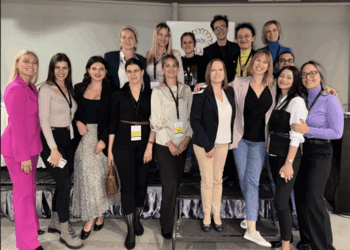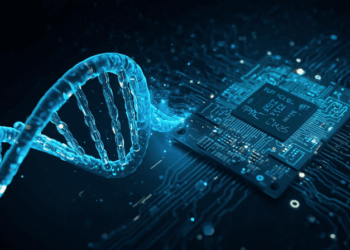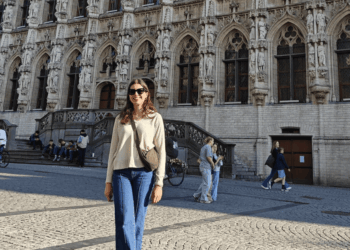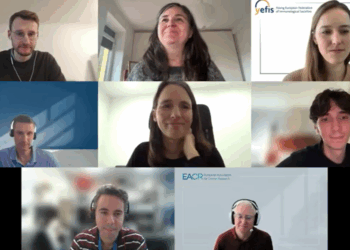Francesca Bonechi is a PhD student at the University of Florence, Italy, who received an EACR Travel Fellowship to visit and work at the University of Manchester, UK between May and July 2025.
The EACR, with support from Worldwide Cancer Research, provides Travel Fellowships of up to €3,500 to enable early-career cancer researchers to gain new skills through a short-term visit to a lab or research group in another country.
You can read about other Travel Fellows and their experiences here.
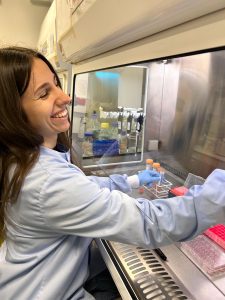 Name: Francesca Bonechi
Name: Francesca Bonechi
Job title: PhD student
Home institute: University of Florence, Italy
Host institute: University of Manchester, UK
Dates of visit: 05 May – 31 July 2025
Research: Metabolic reprogramming and dysregulation are key features of cancer. These changes are not just secondary effects of the increased energy and anabolic needs of cancer cells, but these traits can support and promote tumour initiation and progression. Crucially, metabolic reprogramming plays a vital role in how cancer responds and adapts to therapies. In my laboratory, we focus on understanding how metabolic reprogramming occurs, especially in relation to resistance to cancer treatments. Indeed, overcoming drug resistance is the most critical unmet need in cancer care. Therefore, it is crucial to identify biomarker-defined patient groups most likely to respond to treatment.
Why did you decide to apply for an EACR Travel Fellowship?
I have been a member of EACR for several years now. I stay updated on all your initiatives and have participated in a conference organised by you. I believe you are a very important organisation in the world of research, offering very interesting conferences, workshops, and activities. Because of this, when I saw the opportunity to apply for a grant to go abroad, I didn’t hesitate to participate, knowing that winning this grant would be a significant achievement for my professional career.
Why did you choose the host lab?
I chose this laboratory based on my supervisor’s recommendation, who was already familiar with their work in breast cancer research, an area also central to our home laboratory. We were particularly interested in their established protocol for generating organoids from metastatic cells isolated from ascites and/or pleural effusions of ER+ breast cancer patients. Since no one in my home laboratory had prior experience with this technique, I decided to join this lab and bring this expertise back to our team.
Can you summarise the research you did or what you learned on your visit?
Using a protocol refined in the host laboratory, I isolated tumour cells from ascites and/or pleural effusions of ER+ breast cancer patients who had previously received CDK4/6 inhibitors. I then cultured these cells in a specialised medium to generate patient-derived organoids (PDOs). After approximately one week, once the organoids reached an appropriate size, I assessed the effects of CDK4/6 inhibition and CD36 inhibition on PDO growth. For this, I added the inhibitors post-organoid formation and monitored growth using the Incucyte system, which enabled real-time imaging at regular intervals throughout the experiment. This experience allowed me to develop practical expertise in isolating cancer cells from patient-derived fluids and establishing organoid cultures from them.
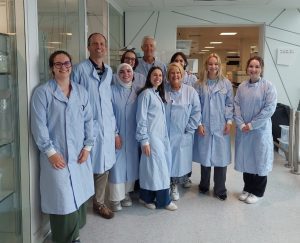
What were you able to do that you could not have achieved in your home lab?
In the host lab, I had the opportunity to gain experience with the Incucyte, an instrument not available in my home laboratory, through specialised courses that allowed me to become familiar with its operation and applications, focusing in particular on the analysis of organoids.
Have you brought back any specific knowledge or technique that has benefited your home lab?
Our laboratory lacks the expertise in more clinically relevant models, such as PDOs, which offer a more accurate and longer-term assessment of drug response compared to traditional cell lines. My goal is to implement PDO-based models in my home laboratory upon my return. Indeed, my laboratory maintains a close collaboration with the Breast Unit at Careggi Hospital in Florence and I can have access and then select patients of interest based on receptor status and treatment history to establish a Biobank, similarly to that of the MCRC. This resource will be invaluable for validating our findings in clinically relevant models.
How has this visit been beneficial to your research and your career?
First, the visit helped me improve my English and boosted my confidence. More importantly, interacting with a different research group and immersing myself in a new environment significantly broadened my horizons. Overall, it was a highly valuable experience that contributed meaningfully to my career development.
Want to find out more?
If you are interested in applying for the Travel Fellowship scheme, please click here for more information: EACR Travel Fellowships




